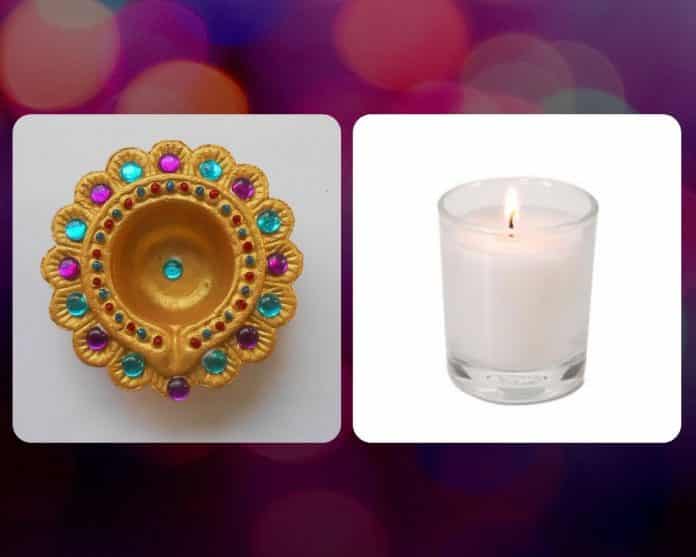Every year after Diwali, my mother-in-law would pick a rupee coin from her puja (worship) platter and put it away with her other Diwali keepsakes. Her Diwali coin collection grew quite large and included some vintage beauties from decades ago.
When she moved to Australia to live with her sons, she divided her Diwali coins equally between her two daughters-in-law. She didn’t tell us to, but we continued the tradition, picking a dollar coin each year to add to the collection.

Diwali is a time of tradition and not just those that have been passed down to us through the ages. Look at your own Diwali practices and you’ll find some that you have created for your family.
Perhaps you allow your kids to pick their own special candles from the bargain shops, as a way of getting them involved in Diwali (cactus-shaped, frog-shaped, or thong-shaped items on your puja thali may not exactly sit with tradition, but you allow it nonetheless for the sake of initiative). Or you preserve the number candles from birthday cakes for the kids to light as their ‘special candles’ (and also as a way of reducing your own waste footprint). Or you seek out natural candles with no dyes or enhancers.
Perhaps you eschew candles altogether, having reverted to the more sustainable mitti ka diyas (earthen lamps). Perhaps you’ve moved to buying your special diyas from charity-based operations, to help create opportunity and empower someone in need. Perhaps mithai has vanished from your festive greetings to friends and family, replaced with healthier options of fresh fruit and nuts. Or pot plants. Perhaps Diwali in your family involves giving to others less fortunate than you.
Your greener, more sustainable and resource-efficient celebration is a more mindful Diwali – one that allows you to vanquish the dark and bring in the light in a more direct and practical sense.
Moving away from stagnant perspectives propels us into higher ways of becoming. And so, Diwali can be just as much about evolution and change, as it is about tradition and continuity.
Tradition is necessary in that it values and preserves the collective wisdom of those that came before us. It also provides stability and social identity.
At the same time, the past might not always inform the present: given contemporary challenges, change is inevitable, and meaningful change, essential. Of course, your own new (and progressive) versions of Diwali will pass on to your kids as ‘tradition’.
When my treasured Diwali coin collection ultimately makes its way into my children’s homes, they’ll probably look at it each year and say, check out these vintage Aussie dollar coins from decades ago, and who knows, perhaps add a coin from whatever currency they’re living with.
Have a mindful Diwali.
READ ALSO: Ideas for a COVID-safe Diwali celebration




